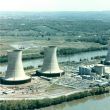Toward a fairer, more effective nonproliferation regime
By Naeem Ahmad Salik, May 1, 2012
This Roundtable asks how signatories to the Nuclear Non-Proliferation Treaty (NPT) can ensure that the treaty's provisions are fairly enforced. But because the treaty is characterized by an imbalance between the rights and obligations of signatories — dividing them as it does into "haves" and "have-nots" — the concept of fairness in the treaty's implementation frankly seems a bit surreal. In addition, "enforcement" is a strong word, as it carries connotations of force (indeed, as represented most dramatically in the US-led attack on Iraq in 2003, counterproliferation as opposed to nonproliferation is already the preferred option for the United States and the European Union). Perhaps "implementation" would be a better choice for this Roundtable question.
The treaty has been the centerpiece of the global nonproliferation regime for over four decades. But its record is mixed. To a large extent the treaty has fulfilled the objective expressed in its name, that of preventing nuclear weapons proliferation. In the 1960s, some analysts predicted that 25 to 30 nuclear weapon states would exist within decades, but in fact only nine states have nuclear weapons today.
Nonetheless, the treaty has always suffered from inadequate institutional support structures. The NPT's oversight functions are carried out through the safeguards regime of the International Atomic Energy Agency (IAEA), supplemented by export control regimes — but the only action at the agency's disposal in cases of noncompliance is referral to the UN Security Council.
Moreover, the treaty's credibility has been eroded at times over recent decades, for instance by Iraq, Libya, and Syria's surreptitious pursuit of nuclear weapons. Ongoing concerns about Iran's nuclear ambitions have also challenged the treaty's credibility. But so, too, have certain actions on the part of the recognized nuclear weapon states. The United States deploys battlefield and theater nuclear weapons in Germany and other NATO countries, and Russia has leased a nuclear-powered submarine to India. These actions violate at least the spirit of the treaty.
Meanwhile, many nations maintain grievances about the NPT, whether or not they possess nuclear weapons. Non-nuclear weapon states surrendered their right to develop nuclear weapons when they joined the treaty; in return, their inalienable right to utilize peaceful nuclear technology was recognized, and they were promised assistance from nuclear powers in acquiring such technology. Nuclear weapon states, for their part, promised to enter into good-faith negotiations toward eventual nuclear disarmament. But non-nuclear weapon states complain at times that nuclear weapon states have neither provided adequate access to peaceful nuclear technology nor made sufficient progress toward disarmament. Nuclear weapon states, on the other hand, remain wary of potential misuse of peaceful nuclear technology by some non-nuclear weapon states.
To address the grievances of both types of states, an international consortium could be created under the IAEA that would assure countries a guaranteed supply of technology and fuel in return for two things: first, their arranging to return spent fuel and, second, their acceding to the Additional Protocol to the NPT Safeguards Agreement — which was drafted to enhance the IAEA's inspection regime after the extent of Iraq's nuclear-weapons activities was discovered following the 1991 Gulf War. (Many countries have not signed the protocol, or have failed to ratify it.) Under any such consortium, however, access to nuclear technology and fuel would have to be strictly criteria-based, and not subject to individual countries' political preferences.
Additionally, the IAEA's financial and human resources would have to be enhanced substantially. Enhancing these resources would in turn demand that member states share burdens equitably, so that major powers could not exert overbearing influence due to their larger financial contributions.
Another long-standing problem for the NPT has been that of three holdout states — India, Israel, and Pakistan, all of which have acquired nuclear weapons. (North Korea, the only country ever to join the nonproliferation regime and then leave it, has also acquired a nuclear capability). Under the treaty as it stands, the holdouts can join only as non-nuclear weapon states, which India and Pakistan find unacceptable. An amendment to the treaty might resolve this problem, but the amendment procedure is tedious and many fear that opening the NPT to amendment would be to open a Pandora's box. Therefore, the problem appears to many an intractable one.
However, without tinkering with the treaty unduly, it might be possible to formulate an additional protocol whereby the three outliers would take on the obligations accepted by other nuclear weapon states in return for acceptance of their status as nuclear weapon states. Eventually, the successful establishment of a Middle East nuclear-weapon-free zone would resolve both the Israeli and Iranian problems. The North Korean problem might be resolved in the future through the six-party process, or through a bilateral agreement between North Korea and the United States. At that point, the treaty would have achieved universality.
Now and later. These goals are ambitious and will not be achieved right away. In the meantime, the IAEA in collaboration with nuclear supplier states could take several steps that might enhance the global nonproliferation regime. One step would be the establishment of "nuclear power parks," an arrangement whereby a supplier or international consortium would build and operate nuclear power plants in space provided by host countries; the supplier or consortium would provide its own fuel and remove it once it was spent, without the involvement of local manpower. Another idea worth exploring might be ship-based power plants that would anchor in harbors and connect to local power grids. The agency could also commission studies aimed at developing proliferation-resistant nuclear technologies that could reduce the possibility of diversion and cheating. For this, the agency could utilize its own pool of experts, and advanced countries could be used to research these systems. Meanwhile, the five recognized nuclear weapon states should demonstrate more urgency regarding the provision of negative security assurances to non-nuclear weapon states, alleviating their security concerns and reducing their incentives to seek nuclear weapons. (Negative security assurances are already on the agenda of the Conference on Disarmament but have not yet been taken up for serious discussion).
Negotiations toward a convention that outlaws nuclear weapons should get under way as well. Such negotiations would stretch over many years; in the meantime, the steps outlined above might enhance the nonproliferation regime and eventually make it universal. This would help provide assurances to all.
Topics: Nuclear Energy, Nuclear Weapons
Share: [addthis tool="addthis_inline_share_toolbox"]














